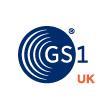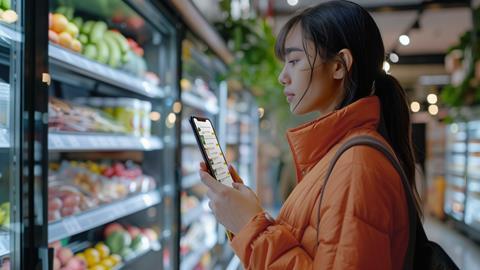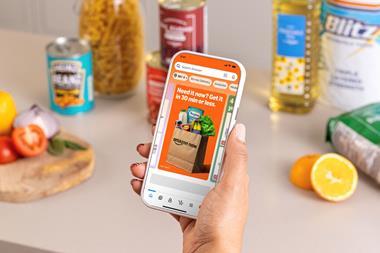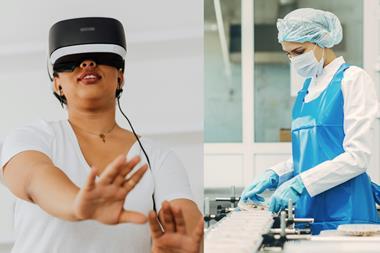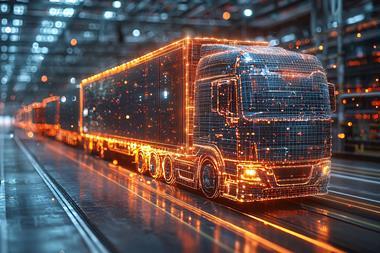With consumers increasingly knowledge-hungry, retailers need to stay one step ahead to satisfy their thirst for information. GS1 and FT Longitude carried out extensive research with retail executives to assess what areas they need to focus on to achieve this.
Today’s consumers want more than just a product – they want trust in return for their loyalty. From how a product is made and the labour standards involved, to its provenance and environmental impact, customers are increasingly conscious of what they buy and are making increasingly complex decisions every time they shop.
The foundations of customer relationships are shifting in the UK. The informed, knowledge-hungry customer will be the norm in the near future. By 2030, the feature of the in-store experience most in demand from customers will be access to detailed product information. A company’s ability to meet this need will rely on trustworthy data obtained from across the supply chain and shared with customers using a range of technologies.
What does this mean for the wider retail industry, and how quickly will these changes come about? To find out, GS1 UK in collaboration with FT Longitude canvassed the views of more than 500 UK-based leaders of retail businesses.

Here are the five key predictions these retailers and brands shared:
1. Customer experience will gain a new dimension
Best-in-class customer experience (CX), both in-store and online, will come to be based on customers’ access to the types of detailed product information described above. In 2030, easy access to such information will do more to shape CX than loyalty rewards.
2. Full product transparency will build deeper trust
Better access to product information will do more to build customer trust in the future than any other technology capability. To create this access, businesses must develop processes and mechanics that will allow them to share more information on the product journey with consumers.
3. Retail digitisation will take another leap forward
Retailers and brands will use a range of technologies to give customers the experience they want. Over 70% say that a variety of technologies will be part of their future growth strategy. These include the Internet of Things (IoT), blockchain, predictive analytics, automation, artificial intelligence (AI), and augmented and virtual reality (AR/VR). Almost as many (69%) say the same about the potential that QR capabilities can unlock.
4. QR will fast become ubiquitous in UK retail
By 2026 the QR code will be the norm in UK retail environments, say 71% of respondents. All believe this will be the case by 2030, and 41% expect it to have supplanted the barcode by that time as the product identifier. Nearly half (46 %) of the surveyed companies have begun to build QR capabilities, and 52 % say they’ll start doing so within the next two years.
5. Retail technology must deliver on sustainability
Without additional technology investment, retail businesses will be unable to meet their sustainability commitments, according to 40% of respondents. Over two-thirds (37%) strongly agree (and 53% ‘somewhat’ agree) that QR will be essential to meeting future sustainability commitments. At the very least, more accurately measuring progress toward their targets should help companies to meet them.
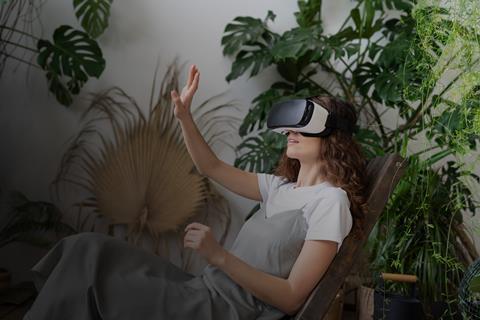
“96% of retail executives agree that major change is on the horizon with 42% saying their industry is changing more rapidly today than they have ever witnessed in their careers”
Major change on the horizon
Nearly all of the retail executives GS1 UK spoke to (96%) agree that major change is on the horizon with 42% saying their industry is changing more rapidly today than they have ever witnessed in their careers. 92% say that trusted data that informs and protects consumers will be at the heart of this transformation and over one-third (34%) say that consumer access to such information will be one of the biggest areas of change in retail between now and 2030.
UK consumers have much to gain from this evolution. They will be more empowered, more informed and better protected. Using their smartphone to scan a QR code, consumers will have easy access to vital data about the sources of product ingredients and materials, so much more than they can currently find on-pack. Climate-conscious consumers will be able to learn where and how the product was made and the emissions generated in their manufacture and transport. Ethical shoppers will be able to read about which labour standards the product meets. Curious consumers will be inspired by the brand story and how to get the most out of the product, and cautious consumers will be protected with quick unambiguous access to allergen data for example.
A new loyalty battleground
A crisis of consumer trust in brands is a major catalyst behind this change, according to consumer expert and retail strategist Kate Hardcastle MBE.
“Consumers’ constant demand for more information and a better experience will create a survival-of-the-fittest dynamic in retail, even among the sector’s biggest brands,” she says. “Those which provide greater transparency by giving consumers open and honest easily accessed information will have an undeniable competitive advantage.”
The UK’s retail industry leaders agree, with 89% saying consumers are less loyal to brands than they were 10 years ago. This is reinforced by the fact that under half (48%) of the UK population express some level of trust in businesses.

“Technology that can communicate data to consumers emerged as essential to stemming the decline in consumer trust”
Rebuilding trust with QR codes
Technology that can communicate data to consumers emerged as essential to stemming the decline in consumer trust, with QR codes powered by GS1 being recognised as a key enabler. These smarter QR codes are dual-purpose – giving every product the ability to provide consumers instant access to comprehensive online information while also going beep at the till.
The potential of this technology is so great that nearly half (46%) of the companies surveyed said they have already begun building QR capabilities, 52% will start doing so within the next two years, and 41% expect that smart QR codes will replace the linear barcode within five years, creating huge changes for businesses and the way that consumers shop – not just in the UK but worldwide.
To find out more about this research, download GS1 UK and FT Longitude’s new report at: gs1uk.org/a-new-era-of-transparency
